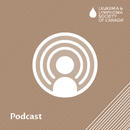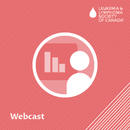Staying positive and realistic
This is a hard time for you, your family and friends. You may resent others who are well. Others may be upset that you have cancer or may be afraid of losing you. There may be arguments. Remember, it’s okay to feel sad or angry. Still, it is important to focus on your new reality.
You can and should resume as many of the activities you need and want to do as soon as you feel able and your doctor says it’s okay. Before you were diagnosed with cancer, you had things you enjoyed. You had responsibilities. You had goals. You may have some new priorities now, but many of your former activities are still an important part of your life.
You may feel better when you:
Remember, your illness doesn’t define you. It is something that happened to you.
Remember all the things that you are. For example, you may be a parent, a spouse, a friend, a business person, a musician or a gardener.
Are able to process and accept that your life has changed. Be patient with yourself, it takes time to adjust.
Practice your faith at a church, synagogue or mosque, or connect with your spirituality at home. Do what gives you strength.
Plan something you enjoy—a trip to your favorite store, a day with your grandkids.
Make a list of things that make you feel good. Include activities you can do right now and plan activities you can do in the future.
List your passions. What gives you joy? Are you able to do this now even in a slightly different way?
Work on craft projects you enjoy, such as knitting, scrapbooking or photography.
Laugh. It changes your brain chemistry and it is very contagious. Cancer may not be funny, but so much of life is.
Talk to someone who's been there
You may feel overwhelmed by your cancer or that your life has been overtaken by treatment
Making treatment choices, finding the time and money for medical care, and communicating with family members and friends can add stress as well. What's more, some anti-cancer medications may contribute to feelings of anxiety and symptoms of depression.
On top of being depressed or anxious, you may also feel a sense of guilt. You may not feel as good as you expected to during or after treatment and, even though you try, you are unable to feel grateful or happy about your progress. This can lead to feelings of guilt for not appreciating how hard others are working to help you.
Don't ignore any of these feelings during this time. Treatment for depression has proven benefits for people living with cancer. Studies show that people who are depressed and have a serious illness are more likely to suffer worse symptoms of both the depression and the illness. There is some evidence that treating depression can result in a better outcome (prognosis) for the disease.
Recognizing signs of depression
Persistent feelings of sadness, hopelessness and anxiety
Fatigue and lack of energy
Feelings of worthlessness, guilt or helplessness
Irritability
Restlessness
Sleep disturbances or excessive sleeping
Overeating or a loss of appetite
A loss of interest in hobbies or activities that you once enjoyed
An inability to focus or concentrate, make decisions or remember details
Headaches, stomachaches or digestive problems, cramps and other aches and pains that don't respond to treatment
Thoughts of death or suicide
Getting help for depression
Get medical advice if your symptoms or mood doesn't get better over time. If you're feeling anxious, sad or depressed during most days for two weeks, ask your doctor for help and guidance.
There are many sources of help available to you and your caregiver. Call us to talk to a Community Services Manager in your area. We can give you guidance and refer you to other sources of help such as support groups, counselling services or community programs.
What you can do
While it's important that you discuss your depression and anxiety with your doctor and get support from local programs, there are also some things you can do to help yourself:
Understand that your cancer doesn't define who you are.
Set small, manageable goals.
Don't isolate yourself.

Aim for some light physical activity everyday.
Try to engage in activities beyond your cancer experience.






